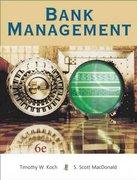Question
Ant and Others Embraced Crowdfunded Medical Coverage, but Now It's Under Beijing's Microscope Chinese regulators have warned that the industry has the characteristics of commercial
Ant and Others Embraced Crowdfunded Medical Coverage, but Now It's Under Beijing's Microscope
Chinese regulators have warned that the industry has the characteristics of commercial insurance without being supervised as such
WSJ By Xie Yu - April 15, 2021
In China, a financial-technology innovation that has sent billions of dollars to critically ill people is losing its shine and drawing regulatory scrutiny, creating more uncertainty for Jack Ma's Ant Group Co., the industry's biggest player.
The business, known as "mutual aid," has seen tens of millions of strangers chipping in small amounts of moneytypically the equivalent of less than $2 each monthto fund lump-sum payouts of as much as around $45,000 to people who suffered serious injuries or were diagnosed with certain illnesses such as cancer, severe strokes and Ebola.
The concept of crowdfunded critical-illness coverage has caught on among internet-technology startups and giants over the past few years. Many saw it as a way to provide benefits to their users and keep people connected to their apps. The companies said their services differed from commercial health insurance because users weren't required to pay anything up front, and were instead committing to share the cost of future payouts to others.
Financial regulators don't see it that way. As mutual-aid services have surged in popularity, the country's banking and insurance regulator has warned that the industry has the characteristics of commercial insurance without being supervised as such and could pose risks to individuals and the companies.
Earlier this week, Chinese financial regulators laid out a five-pronged business rectification plan for Ant, which will restructure itself and apply to become a financial holding company that would be overseen by the People's Bank of China. While regulators didn't directly address Ant's mutual-aid service, the company said it would ensure that its financial-related businesses were fully regulated.
Ant, the owner of popular payments and lifestyle app Alipay, entered the mutual-aid business in 2018 and supercharged its growth. Ant's service, called Xianghubao, which means "mutual treasure," had more than 105 million subscribers at the end of 2020 but wasn't profitable, according to its yearly update to users.
Its user numbers have declined by about 9.3% this year, after people were made to cough up rising amounts to cover payouts to others. Close to 113,000 members of Ant's mutual-aid service have received the equivalent of $2.5 billion in total over the past two-plus years.
About a year ago, Ant estimated that more than 150 million Chinese citizens had signed up for mutual-aid services provided by more than 10 companies. It predicted that the number of users across the industry would triple by 2025 to 450 million, close to a third of China's population. Many people who subscribed to the services come from low- to middle-income backgrounds and live in rural villages or cities in less developed and poorer parts of the country.
Fan Xiao, a 21-year-old college student who joined Ant's mutual-aid service in early 2020, said her bimonthly contribution more than doubled to the equivalent of around 97 cents in late March.
Ms. Fan said she originally signed on to Ant's service thinking she was doing a good deed for others in need, in the hope the favor would be returned to her if she were to be afflicted by similar misfortune. The higher payouts could make her reconsider. "I will have second thoughts if it charges a few hundred yuan a year," she said.
The banking and insurance regulator released a research paper last fall flagging risks to stakeholders in online mutual-aid platforms, including those operated by Ant and Waterdrop, that have large numbers of users but aren't bound by any regulatory authority or standards.
In its listing prospectus, Ant said the mutual-aid service could become subject to regulatory oversight and be regarded as an insurance product. It also said that if claim payouts increase, some participants might drop out of the service or decline to supply the funds, which could force it to make up the shortfall. Ant said it might divest the mutual-aid business if the service doesn't comply with regulatory requirements and the company can't keep it going.
Questions:
- Explain why asymmetric information in the market for mutual-aid networks can result in adverse selection. (5 Points)
- What is moral hazard? Why would mutual-aid networks lead to moral hazard? (5 points)
- In the context of asymmetric information, how do mutual-aid platforms present threats and opportunities for patients and stakeholders? (4 points)
Step by Step Solution
There are 3 Steps involved in it
Step: 1

Get Instant Access to Expert-Tailored Solutions
See step-by-step solutions with expert insights and AI powered tools for academic success
Step: 2

Step: 3

Ace Your Homework with AI
Get the answers you need in no time with our AI-driven, step-by-step assistance
Get Started


